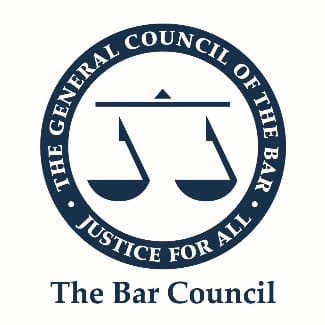'A Matter of Clarification' – Written Questions to Experts
A party’s ability to put written questions to an expert – both one instructed by another party or a single joint expert – is provided for by FPR 25.10. The rule dictates that questions put to an expert must inter alia both be 'proportionate' (r.25(2)(a)) and for the purpose only of 'clarification' of the report (r.25(2)(d)). FPR 25.17 deals with the expert’s right to apply to the court for directions. Rule 25.17(1) states that experts may file written requests for directions 'for the purpose of assisting them in carrying out their functions'.
The is little (if any) guidance in financial remedy cases (or family cases more generally) in relation to how these two rules should be interpreted in practice. However, as r.25.10 is essentially lifted directly from CPR 35.6 and as r.25.17 is likewise lifted from CPR 35.14 the case law and commentary on these rules may provide some guidance although this is only by analogy and the court is not bound by such authorities.[[1]]
'Clarification' is not defined in either the CPR or the FPR. There is also no reported authority (so far as the author is aware) where the term is defined ‘head on’. In the White Book commentary on CPR 35.6[[2]] it is stated that (emphasis added):
‘it would seem that questions should not be used to require an expert to carry out new investigations or tests, to expand significantly on his/her report, or to conduct a form of cross examination by post, including an expert’s credibility unless the court gives express permission.’
This commentary reflects the approach of the Court of Appeal in Mutch v Allen [2001] EWCA Civ 76 in which an expert in a personal injury case was asked a subsequent question regarding whether injuries sustained by the claimant would have been lessened if he had been wearing a seatbelt. Brown LJ ruled that the question was outside the scope of the instructions and was therefore not 'clarification'. Although it was acknowledged that the information would help the court it was said that the proper way to deal with it would be to either (i) call the expert to give evidence and be cross examined by both parties; or (ii) for permission to be sought to obtain further expert evidence.
In Wilson v Al-Khader [2015] EWHC 4240 (QB) the High Court judge refused an appeal against a decision of a Master in a medical injury case, where he had refused to order the expert to answer written questions on his report holding (at [8]) that (emphasis added):
'the two questions there asked are not clarifications. They are invitations to express an opinion that, conspicuously, the expert in question had not expressed in the report pursuant to which the questions were being raised. The questions … called for not clarification but the expression of additional opinions and they are not, in my judgment, clarification questions within the meaning of Part 35.6.'
More recently Mustard v Flowers and Others [2019] EWHC 2623 (QB) concerned questions put on behalf of the claimant to the defendant’s medical experts, who wrote to the court seeking directions under CPR 35.14. The court’s primary objection was the number of questions which it called 'unprecedented' [33]. The experts themselves cited the following issues:
- some issues would be better dealt with in the joint statement;
- some questions required a close regard to a mass of literature not referred to in the original report;
- there would be significant cost consequences due to the amount of work that would need to be undertaken; and
- the questions were perceived to be cross-examination.
It was also submitted on behalf of the defendants that some of the questions sought to go behind matters that were privileged, and some were premature as they were based on statements by the claimant, the reliability of which was likely to be tested at trial.
In assessing these arguments the Master ruled (at [36]) that the questions should be disallowed as they were (i) wholly disproportionate; (ii) overwhelmingly not for clarification; and (iii) amounted to cross-examination. If the questions were seeking to remedy omissions, the judge stated that they were best addressed by supplementary reports 'which are likely to render whole swathes of the questions redundant, (which is, of course, an additional reason why questions such as the present ones are discouraged)'.
Of note is that the Master accepted that the questions were relevant but this did not amount to a reason to allow them. The combination of the above factors, and the fact that many of the questions could be answered in other ways (cross examination or joint/supplementary reports) outweighed the relevance of the questions.
The Master also made the following observations:
- it is undesirable that the experts themselves should be forced to make a value judgment about the appropriateness or proportionality of a question, or set of questions, before choosing whether to answer;
- questions should not be framed in a way that requires such judgments or explanations, which are the province of the lawyers not the experts; and
- where questions are deemed disproportionate, it is not for the court to embark on a ‘rescue mission’. Instead, there is a policy interest in discouraging disproportionate questions by simply disallowing them.
It is clear from the foregoing that:
- clarification must be of matters arising from the report and not a request for fresh opinion and/or requires the expert to expand significantly upon their report;
- relevance is not the test for whether a question is legitimate;
- questions that are disproportionate, not for clarification, amount to cross-examination, and/or seek that the expert expands significantly on his/her report should be disallowed;
- proportionality will outweigh relevance in any decision the court makes;
- where a question is outside the scope of the instructions, the crucial point the court will consider is whether the question would assist the court in the ‘just disposal of the dispute’ (Mutch). If the answer is no, then, even if it is relevant, that the court should not allow it. If it is, then the court may allow for the expert to be called to give evidence or for an application to be made to obtain further expert evidence on that specific point. However, it should not be dealt with by way of 'clarification'.
There is little additional guidance on an application by experts to the court for directions under FPR 25.17. Indeed, the editorial notes to this rule in the Family Court Practice 2021 state that:
'There is no clear procedure within the rules or the court administration as to how these directions are to be requested or dealt with.'
This accords with the observations of the Master in Mustard v Flowers and Others at [36] namely that:
'letters of any kind from experts to the court seeking directions under CPR rule 35.14 are very rare. I consulted the longest serving Master, Master Yoxall, on this matter. He had received questions from an expert on just two occasions in 18 years.'
Is there (or should there be) a difference in approach depending on whether a party’s objection to a question is on grounds of 'proportionality' or 'clarification' and who bears the responsibility to apply to the court if there is a dispute given that these restrictions apply by virtue of r.25.10(2) '[u]nless the court directs otherwise or a practice direction provides otherwise'?
It is suggested that a dispute as to 'proportionality' is always one for resolution by the court. Making directions that are proportionate is a core exercise of the court’s case management powers and part of the overriding objective 'to deal with cases justly' includes at r.1.1(2)(b) 'dealing with the case in ways which are proportionate to the nature, importance and complexity of the issues'. Pursuant to r.1.2 a court must also seek to give effect to the overriding objective when it either (i) exercises any power given to it by the FPR; or (ii) interprets any rule. Further, and as the Master observed in Mustard v Flowers and Others, it will be difficult – if not impossible – for an expert to determine whether or not questions that have been asked are proportionate to issues in the case. In this limited regard the author respectfully disagrees with Duncan Brooks, barrister at QEB and lead author of the Practical Law article Instructing an expert in financial remedy proceedings, when he states that '[t]he most common example [of an application under r.25.17] would be where disproportionate questions are put, and the expert seeks the court's guidance about whether or not to answer them'.
If the dispute is one of 'clarification' then the position is not so clear-cut. On the one hand it can be argued that this too is a matter solely for the court given that (i) the admission of expert evidence is always one for the court (as pursuant to r.25.4(2) a person may not without the permission of the court put expert evidence in any form before the court); and (ii) pursuant to r.25.10(3)(b) an expert's answers to written questions are treated as part of the expert’s report. On the other hand it can be said that the expert is the person best placed to determine whether or not a particular question is genuinely one seeking 'clarification' of what he or she has written. Some support for this latter view may perhaps be drawn from r.24.10(4) which deals with the orders that a court may make where a party has put a written question to an expert instructed by another party and the expert does not answer that question – which could be interpreted as implying that whether to answer the question or not is a matter for the expert – although query whether the same applies by analogy with the instruction of a single joint expert.
Asking the expert to determine the issue of 'clarification' may, however, run the risk of the expert ‘descending into the arena’ with a consequential risk of the loss of their independence (or at least the perception thereof). It is suggested that many single joint experts in particular may not consider it appropriate to answer questions when one party does not agree to the questions raised given the expert’s overriding duty to the court (r.25.3(3)) which overrides any obligation to the person from whom experts receive instructions or by whom they are paid. It might also be asked what the purpose of r.25.17 is in this context if not for the expert to ask the court for directions. Mustard v Flowers and Others also suggests that it is for the court (on the application of the expert or failing that one of the parties) and not for the expert (whether jointly instructed or not) to determine whether the questions that have been asked comply with the rules if one party objects to them being answered.
One potential way forward in such circumstances may be for (i) the expert first to be asked to state whether, in his or her opinion, a particular question (or questions) is or is not one of 'clarification' and, if not, provide a brief reason (or reasons) for that view; and (ii) if the party who has asked the question – or previously resisted it – continues to seek that it be answered or maintains their objection the onus is then on them – the unhappy party – to apply to the court for determination. Such an approach (i) allows the person arguably best suited to express an initial view; but (ii) leaves the ultimate decision to the court but at the same time reduces the number of such applications that are likely to be made.
[[1]]: See the ‘Postscript’ to Goldstone v Goldstone [2011] 1 FLR 1926 per Hughes LJ at [71].
[[2]]: 35.6.1. There is no further assistance provided in the Guidance for the Instruction of Experts in Civil Claims (August 2014).





